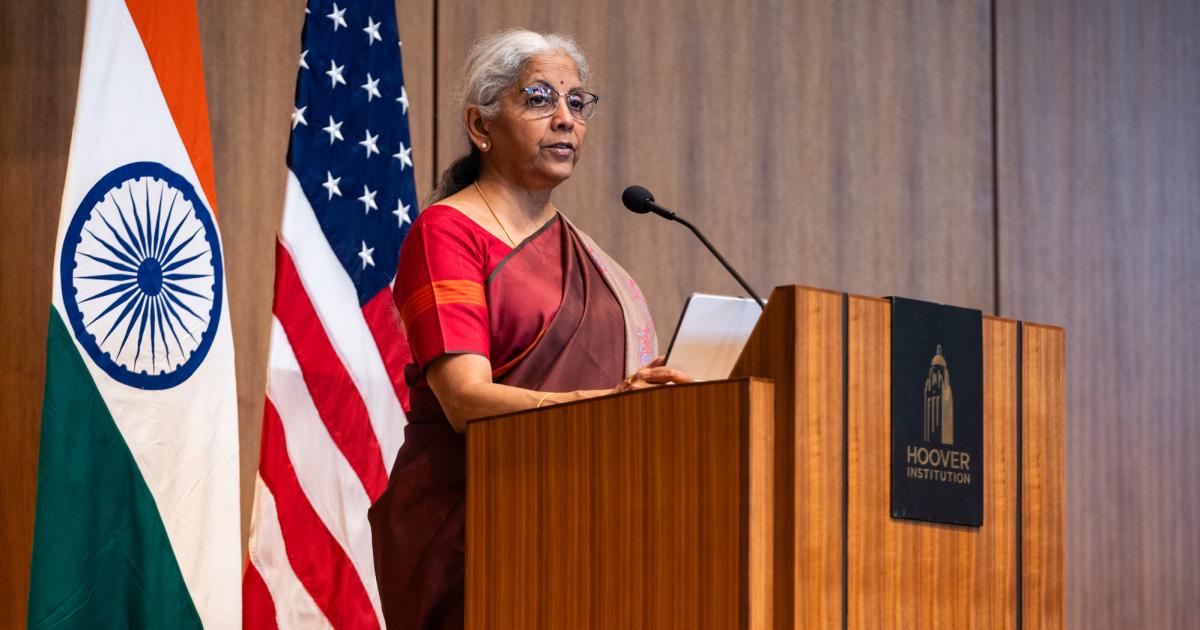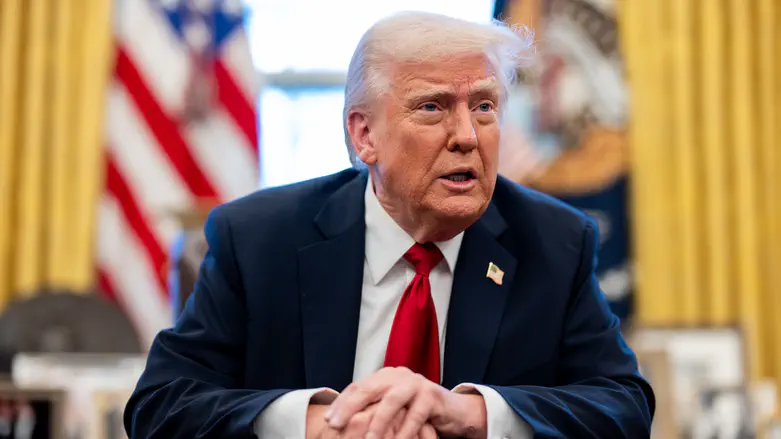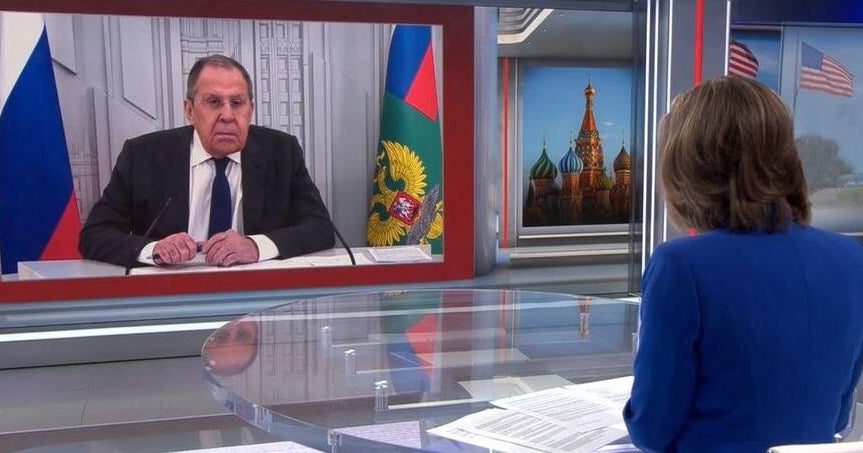India's Finance Minister Nirmala Sitharaman Addresses Economic Partnerships at Hoover Institution

On April 21, 2023, at the Hoover Institution in Stanford, California, Indian Finance Minister Nirmala Sitharaman delivered an impactful speech focusing on Indias steadfast dedication to strengthening economic and technological collaborations with the United States. Addressing a full house at the Hauck Auditorium, Sitharaman highlighted that India was among the first nations to reach out to the new U.S. administration following its announcement of sweeping tariffs impacting nearly ninety countries.
"We were one of the earliest to approach the new administration in the US to talk trade and initiate negotiations for a potential trade deal," Sitharaman stated, underscoring India's proactive approach to fostering critical dialogue. This intent to engage with U.S. officials signals India's strategic positioning in an increasingly competitive global economic environment.
Furthermore, Sitharaman announced that U.S. Trade Representative Jamieson Greer is expected to meet with the Modi administration in the near future. She expressed optimism regarding this anticipated engagement, envisioning it as a potential pathway towards a new trade agreement. "If anything, I hope that the initial phase of this agreement will be concluded by fall this year. We have been open-minded and transparent in demonstrating the value of our trade relationship with the U.S.," she remarked.
The event was organized by the Consulate General of India in San Francisco, in partnership with Hoovers Huntington Program on Strengthening U.S.-India Relations, which operates under the guidance of Hoover fellow Sumit Ganguly. This collaboration underscores the growing importance of U.S.-India relations in addressing global challenges.
Following her keynote address, Sitharaman participated in a live interview with Hoover Senior Fellow and Research Director Steven J. Davis. The conversation touched on various topics, including India's aspirations to enhance its manufacturing sector. Central to this vision is the ambitious Viksit Bharat (Developed India) by 2047 program, which aims to significantly enhance the countrys manufacturing capabilities. Sitharaman articulated her belief that there are numerous collaborative opportunities with the United States in critical sectors such as nuclear energy, semiconductors, pharmaceuticals, and quantum computing.
During the discussion, Sitharaman also addressed the pressing need to broaden Indias manufacturing workforce and encourage greater female participation in the economy. She pointed out the persistent misconceptions that some global investors and policymakers hold regarding India, which often focus excessively on the countrys challenges, such as poverty and historical issues related to gender and religious equality.
As the economic landscape evolves, Sitharaman cautioned that without a substantial shift in economic output, a significant segment of the Indian workforce could end up in the gig economy within the next few decades. Projections indicate that by 2030, around 230 million Indians could be engaged in this sector. However, the finance minister expressed confidence that her government is focused on increasing the manufacturing share of Indias economy from the current 12 percent to an ambitious 22 percent.
"Manufacturing is a force multiplier for services sector growth, rather than the other way around. It fosters community cohesion and, in the post-COVID world, it also reinforces national security," she explained. To boost domestic production, India is prioritizing a diverse array of manufacturing segments, including smartphones, textiles, leather goods, and green technology.
In addition, Sitharaman highlighted recent initiatives designed to elevate female participation in the workforce. For example, maternity leave has been extended from four weeks to six months, and women who open bank accounts under their names are offered higher-than-market interest rates on their deposits, thus promoting financial independence.
She also shared encouraging statistics illustrating that women now outnumber men in STEM programs at many of Indias prestigious universities. These advancements, according to Sitharaman, reflect a rapidly transforming socio-economic landscape in India, one that challenges outdated notions of the country as merely a representation of poverty.
Changing perceptions about Indiaa countrys imagery and societal mindsettakes time, but policy changes can be implemented swiftly, she concluded, emphasizing the dynamic and ongoing transformation of India on the global stage.


























